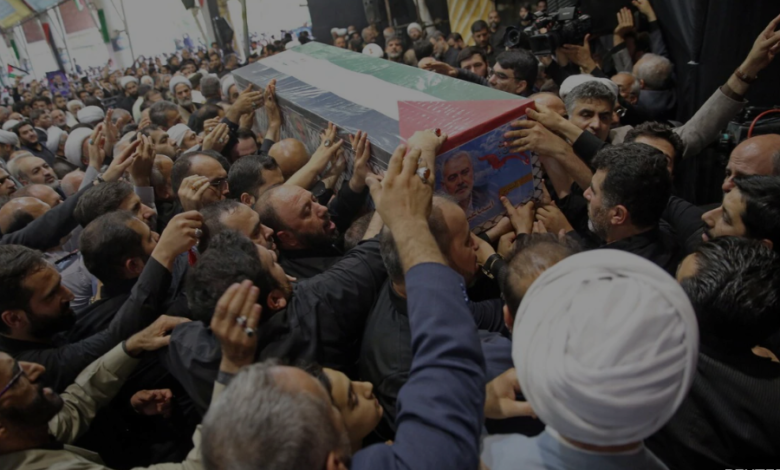Ismail Haniyeh buried in Qatar, mourners said they will continue to fight.

The recent funeral of Ismail Haniyeh’s brother-in-law in Qatar was not a moment of mourning for the families; instead, it was in the greater context of the Israeli-Palestinian conflict. You get tears and wails from many mourners in this sort of classic demonstration—in this kind of moment—at the brother-in-law’s funeral in Qatar. The towering Hamas leader, arguably one of the most outstanding leaders in Palestinian politics, Haniyeh’s tragedy is intertwined with the more significant cause of the ongoing struggle for the attainment of rights and sovereignty by the Palestinians.
The deceased brother-in-law of Ismail Haniyeh was a well-known figure within Gaza and closely related to the top ranks of Hamas leadership. But his was an assassination that, very personal for Haniyeh and his family, also served as a compelling reminder of the larger context of the conflict in which it was playing out. The decision to bury him in Qatar, a country very well understood for its political support for Palestinian causes and its role as a mediator in regional conflicts, does nothing but underscore further the more complex nature of geopolitical dynamics.
The activists further vowed to continue struggling against what they termed as sustaining brutalities and injustices against Palestinians. This came during a funeral teeming with mourners from different factions and communities, signaling strong statements of resilience and urgency at the cause. This courageous and determined spirit was expressed, not just in the case of Al-Sahafi, but of most Palestinians and their supporters at large, about the struggles involved in gaining national self-determination and justice.
This is also something that reiterated where Qatar stands on the Palestinian issue. It is one of the most incredible supporters of Hamas from the Gulf, and it has substantially supported this imagined country through the humanitarian provisions to the tune of Gaza. Qatar’s participation in the funeral and standing by Haniyeh with his family falls into the larger strategy of being a diplomatic supporter of Palestinian causes and a country that mediates in regional disputes. It underpins Qatar’s further political and financial engagement with the Palestinian cause, especially in administering the groups they support—groups like Hamas, which are central players in the Palestinian political landscape.
The mourners’ declarations at that point about the continuity of resistance reflected holding to the never-ending status of the Israeli-Palestinian conflict. The conflict had always been, and perhaps will always be, incessant, despite numerous peace initiatives and international intervention mechanisms, and prone to occasional upsurges of violence and political unrest. The funeral acted as a reminder of the fact that for many Palestinians, the struggle was far beyond a fight against individual grievances. It was a broader one for national rights and an end to what they considered systemic injustice, including hitting out in general.
With the burial over, defiant messages and statements of continued commitment from both sides from the mourners reassert the fighting as a forced issue of politics for regional relations and international diplomacy. That hostility, however, is always ongoing not only between Hamas and Israel but also between the larger geopolitics of other regional players and various global players. The conflict remains a forcible problem in politics within the Middle East.




